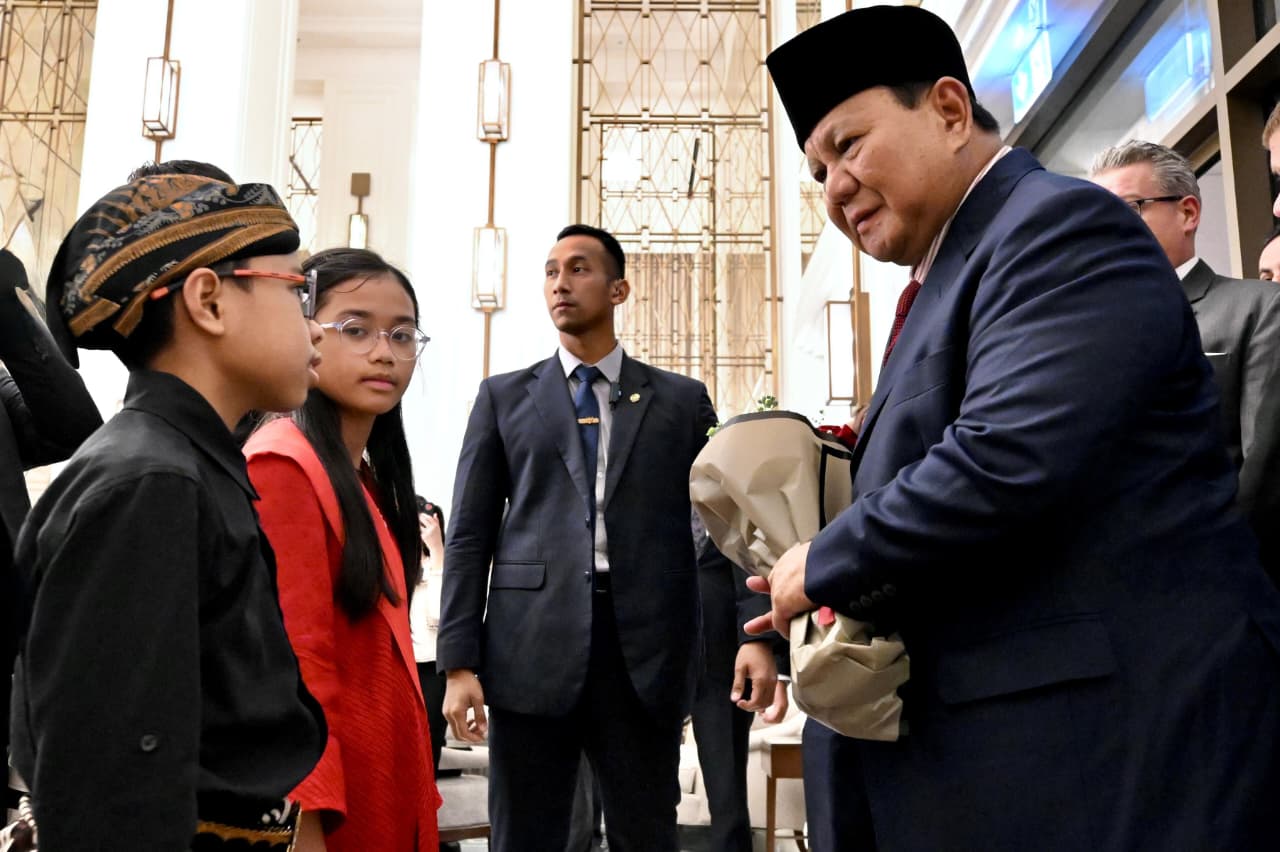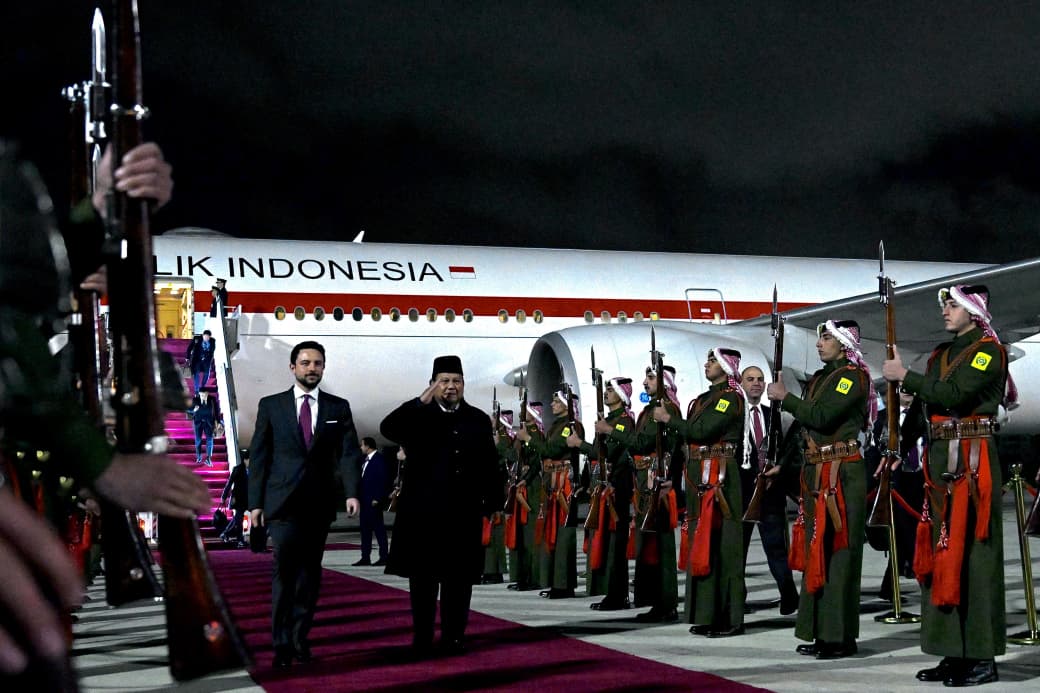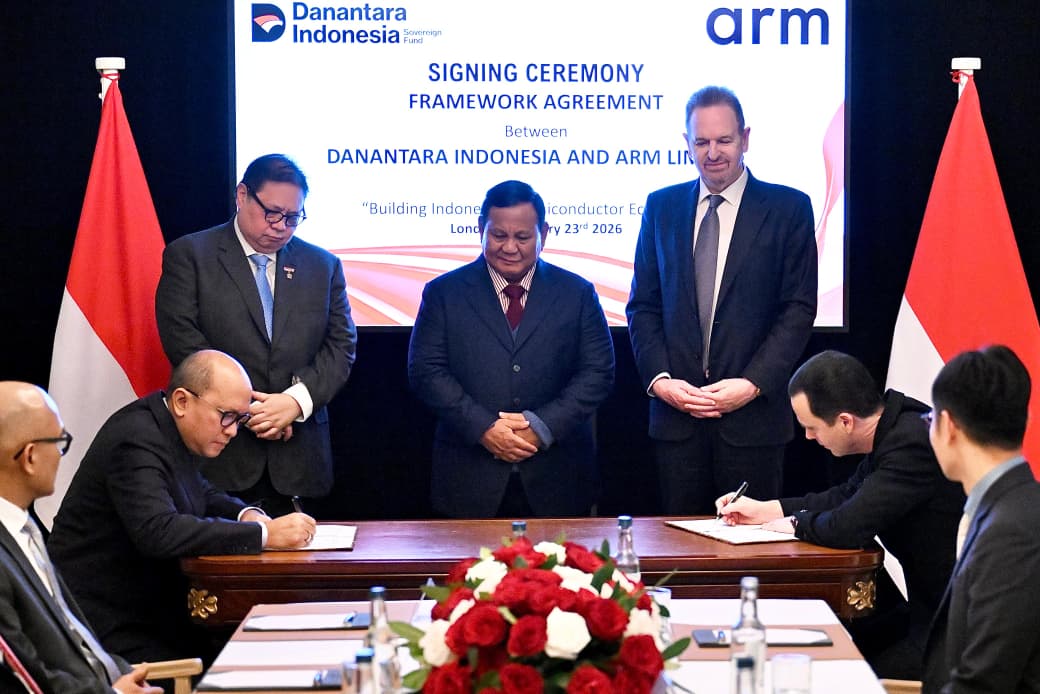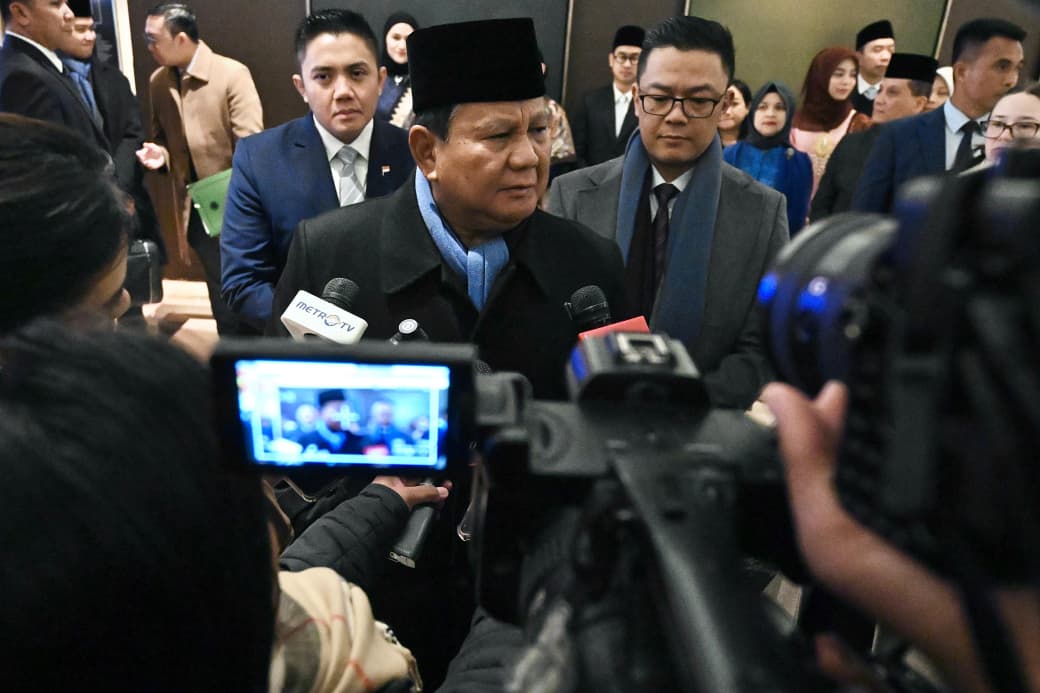State Budget Bill 2018: Govt Set Target of Economic Growth of 5.4%, State Expenditures of Rp2,204.4 Trillion
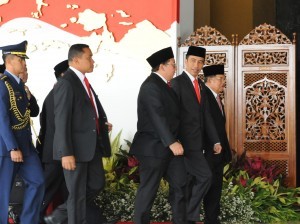
President Jokowi and Vice President Jusuf Kalla accompanied by Vice Speaker of the House of Representatives Fadli Zon enter the Nusantara Building, Jakarta, Wednesday (16/8) afternoon. (Photo: Anggun/PR)
The Government has set a target of economic growth for the 2018 fiscal year of 5.4 percent, the inflation rate of 3.5 percent, the rupiah exchange rate against USD at Rp13,500, the average interest rate of the 3-month Government Treasury Treasury Bill of 5.3 percent, the average oil price assumption of USD48 per barrel, oil and gas export volume of 2 million barrels per day, and crude oil production to the tune of 800 thousand barrels per day and natural gas of 1.2 million barrels per day.
President Joko Jokowi Widodo delivered the figures in his speech on the presentation of the Government Statement on the Bill on the State Budget (APBN) for the 2018 Fiscal Year and its Financial Note, before the Plenary Session of the House of Representatives of the Republic of Indonesia (DPR RI), at the Nusantara Building, Jakarta, Wednesday (16/8) afternoon.
In a session chaired by Vice Speaker of the DPR RI Fadli Zon, President Jokowi asserted that the 2018 State Budget Bill was drawn up in line with a fiscal policy strategy that is aimed at strengthening fiscal stimulus, reinforcing fiscal resilience, and maintaining fiscal sustainability with a focus on social justice.
As for the strategic policies in the 2018 Bill, according to the President, the 2018 State Expenditures, which are projected to amount to Rp 2,204.4 trillion, will be primarily earmarked to reduce poverty and inequality to create justice and social protection for the people. These efforts will be accomplished through increased effectiveness of social protection programmes and more selective spending in education, health and infrastructure.
“The efforts to increase the effectiveness and strengthen social protection programmes will be carried out by widening the targeted scope of beneficiaries of the Family Hope Programme to 10 million families and the scope of assistance beneficiaries of the Healthcare Social Security Agency to 92.4 million people,” the President explained.
In addition, in order to channel better targeted subsidies, the Government diverts the channeling of the Rice for Prosperity (Beras Sejahtera/Rastra) food assistance into non cash food assistance and will also widen its beneficiaries.
Meanwhile, in order to control inflation and maintain the purchasing power of the people, the Government also continues to allocate subsidies for fuel, electricity, fertilizer, Micro Credit Programme (Kredit Usaha Rakyat) and housing interests, and for public services.
In order to support the growth of economic centres and the development of inter-regional connectivity, the Government carries out the building of new roads totaling a length of 856 kilometres and the building of irrigation networks totaling 781 kilometres.
In addition, several programmes of activity of the Government in the framework of increasing the access to education, health, and other basic facilities, are undertaken, among others, through the building and rehabilitation of 61.2 thousand classrooms, the building of waste water sanitation for 853 thousand household heads, and the construction of 7,062 low-cost apartment units for low-income people.
President Jokowi also conveyed that the Government allocates budget transfers to the region and the Village Fund of Rp 761.1 trillion. In addition to supporting governmental activities in the regions, the budgets will be used more selectively for financing development programmes that have become national priorities, mainly through the Special Allocation Fund (Dana Alokasi Khusus) and Village Funds (Dana Desa).
“The budget for the Transfers to the Regions and the Village Fund are primarily aimed at improving the quality of public services in the regions, creating job opportunities, alleviating poverty, and reducing inter-regional inequality,” President Jokowi said.
In the meantime, the Special Allocation Fund for physical use will be directed to catch up on the lag in infrastructures for public services, affirmation to the less developed, border, islands, and transmigration areas.
“The use of the Village Fund will be strengthened to widen development in the villages, both in terms of facilities and infrastructures, which are performance-based,” President Jokowi said.
State Revenues
With reference to the theme of the 2018 fiscal policy and the strategy that supports it, President Jokowi said that State Revenues in the 2018 Bill are projected to amount to Rp1,878.4 trillion. Out of this total amount, the Tax Revenues are projected to reach Rp1,609.4 trillion and the Non-Tax State Revenues are projected to reach Rp267.9 trillion.
“The Government will do its utmost to achieve the revenues target by making various corrective measures and utilize all national economic potentials, yet while still maintaining the investment climate and business sector stability,” the President said.
Meanwhile, the State Expenditures in the 2018 State Budget Bill, according to President Jokowi, are projected to reach Rp2,204.4 trillion, consisting of the Central Government Expenditures of Rp1,443.3 trillion, and the allocation for the Transfer to Regions and Village Fund amounting to Rp761.1 trillion.
With the planned State Revenues and State Expenditures for 2018, President Jokowi said that the budget deficit in the 2018 Bill on the State Budget is projected to reach Rp325.9 trillion or equivalent to 2.19 percent of the GDP.
“The said target of the 2018 budget deficit is lower than its outlook in 2017, which amounted to Rp362.9 trillion or 2.67 percent of the GDP,” President Jokowi said.
In order to finance the 2018 budget deficit, the Government will utilize domestic and international sources of financing, in the form of loans/debts, which will be managed prudently and responsibly in accordance with international management standards.
“The loans will be utilized for productive activities that support the national development programmes, in the sectors of education, health, social protection, infrastructure, as well as defense and security,” President Jokowi said.
Moreover, President Jokowi also asserted that the debt-to-GDP ratio will be sustained below the level regulated in the state finances, managed in a transparent and accountable manner, and with minimized risks posed to economic stability in the present and in the future.
Attending the Plenary Session, among others, were Vice President Jusuf Kalla, Speakers and Vice Speakers, and Members of State Institutions, and the Working Cabinet Ministers. (RMI/GUN/DND/ES) (MUR/YM/Naster).





